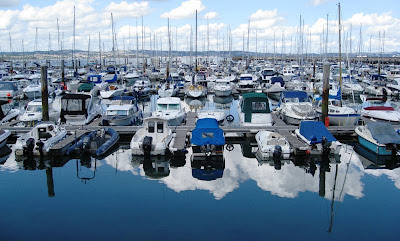 |
| Sissinghurst, June 2012 |
You will be pleased to learn that this week has been sooooo much better than last week. Two colleagues have returned and only one has gone on holiday, my wards are unusually quiet, and the other dietitians seem to be picking up the extra work at the moment. I don't know if it's deliberate so that I can have a bit of a break, or just that they don't realise I don't have that many referrals at the moment. Instead of seeing loads of patients, I have been constructing presentations.
Some months ago I volunteered to do a presentation about a new set of equations that are supposed to be slightly more accurate for estimating daily energy requirements. We use this type of estimation all the time for patients on the wards, where we calculate how many kilocalories (kcal) and grammes of protein they are likely to need in order to meet their nutritional needs and promote recovery. If they need a tube feed, then we estimate energy and protein requirements in order to judge how much feed to give; if they are eating and drinking then we estimate from their own descriptions and from written records how much energy and protein they've taken in of their own accord, and suggest options to make up the difference.
In an ideal world we would then weigh the patients regularly to find out whether they are gaining or losing weight, and try to adjust our recommendations accordingly. The reality is that either they get better and are discharged, or turn their noses up at our supplements and continue to lose weight, or hang around for ages without being weighed so we don't really know whether our estimations are close to real requirements or not. Up to now we've always used equations for calculating Basal Metabolic Rate (BMR) that were published in 1985 by a chap called Schofield.
Basal Metabolic Rate is not the minimum amount of energy that the body needs to operate, but it is the rate of energy consumption of an unstressed body at rest, lying down but fully awake, at least 10 hours after food and in a thermo-neutral environment (22-27 Celsius). It can be measured directly by monitoring the heat emitted by the body in a sealed environment (calorimetry), which is obviously impractical on the wards, so we have to use equations which differ according to sex, age and body weight.
To estimate the total energy required by a person, we start with BMR and then add on the energy needed due to the stress caused by illness, an estimate of activity, and 'diet-induced thermogenesis' (DIT), which is simply the energy we use to digest our food. In a person who is not metabolically stressed we can also adjust our estimate of energy required by either adding some extra kcal if the individual is underweight, or subtracting some if they are overweight. Beyond a BMI of 30 kg/m
2 (i.e. if the person is obese) there are a number of other ways of adjusting our estimates.
Back to Schofield - he looked at all the available data from about 1914 to 1980, and came up with his set of (linear) equations in the form '(A x Weight) + B'. It has been recognised for some time that the Schofield equations are flawed, and not only because they don't work for obese people, as metabolic requirements don't increase linearly - fat tissue is less metabolically active than muscle and organs, so BMR tends to plateau as weight increases. The dataset he used included a disproportionate number of fit Italian males, many from the military, whose BMR results were very high relative to the 'ordinary' population, skewing the results. There were also very few subjects from tropical regions.
New research was commissioned to come up with better equations, which were published by a chap called Henry in 2005. It's taken a while for them to permeate through to the coalface, but I volunteered to investigate how the Henry equations compare with Schofield's, with the underlying aim of changing our practice in estimating BMR. Henry did his analysis with more data, excluded all the Italian subjects, and included more from tropical regions, to make the equations 'more relevant to the global population'. His equations are also in the form '(A x Weight) + B', with different coefficients A and B, and are similarly inappropriate for people who are obese. The Henry equations generally come up with a lower BMR than Schofield, except for subjects over about 100 kg (about 15 stone 10 lb, or 220 lb).
Of course, having volunteered ages ago, I did nothing whatsoever about the presentation for as long as possible, especially as the last two weeks have been a bit busy. Not knowing that this week would be a little easier, I actually spent Sunday afternoon on it, and then Monday afternoon as well. On Sunday afternoon my biggest challenge was trying to think of a way to compare the two methods graphically. On Monday I just tried to make sure the content wouldn't be too boring. In the end the presentation was short, but seemed to be well-received, and we collectively made the decision that we would start using Henry instead of Schofield on the wards.
The results were not entirely cut and dried, though. Subsequent to the publication of the equations, a comparison was done between Schofield, Henry and actual BMRs measured by calorimetry. This research found that Schofield was within 10% of the measured BMR in 69% of subjects, and Henry scored 79%. Not a particularly accurate estimate, then.
Henry produced equations that included height as well as sex, age and weight, and I was hoping that this would successfully deal with the issue of high BMIs. Henry himself concluded, however, that there was little benefit in using height as well, and including height makes the calculation quite difficult (although not impossible) with a non-scientific calculator, which is what we generally take onto the wards.
I did manage to produce some graphical comparisons between Schofield and Henry, one for each of four adult age ranges. Three of these made sense, but the one for the oldest age group (>70) showed that up to a weight of about 70 kg (11 stone/154 lb) Henry's estimated BMR was lower than Schofield's, but above this weight Henry's estimated BMR increased dramatically and unrealistically. On reflection, however, it is highly unlikely that we would encounter anyone on the wards who is both over 70 and heavier than 70 kg.
Our Dietetic Manager is also in favour of a completely different calculation which deals much more successfully with obese subjects, and which she has set up in an Excel spreadsheet for our benefit. We had a short discussion about this after the presentation, and decided to stick with Henry, for two reasons: firstly, we very rarely deal with obese patients on the wards, and secondly, we don't have access to Excel on the wards, and her preferred equation absolutely requires a scientific calculator. In clinics, where we can use Excel, we very rarely calculate energy requirements, because we work on the basis of eating more if you are underweight and less if you are overweight, in comparison with your current intake. It isn't usually helpful to estimate what the absolute calorific value of that intake is.
The other presentation is for my interview tomorrow. I have had to lose almost two days of my holiday and almost every evening this week for these presentations. I hope it's worth it.









